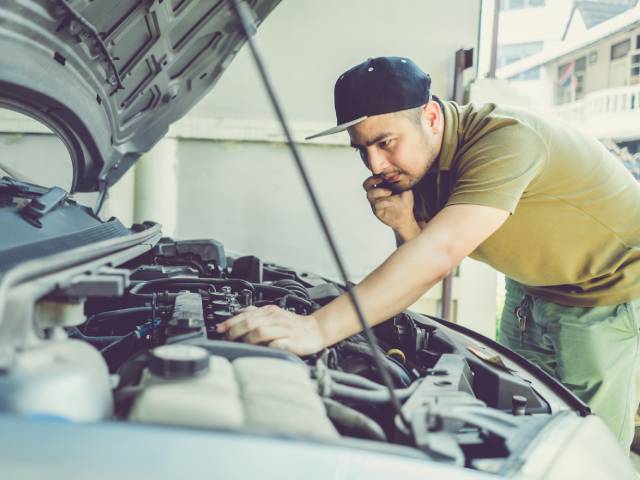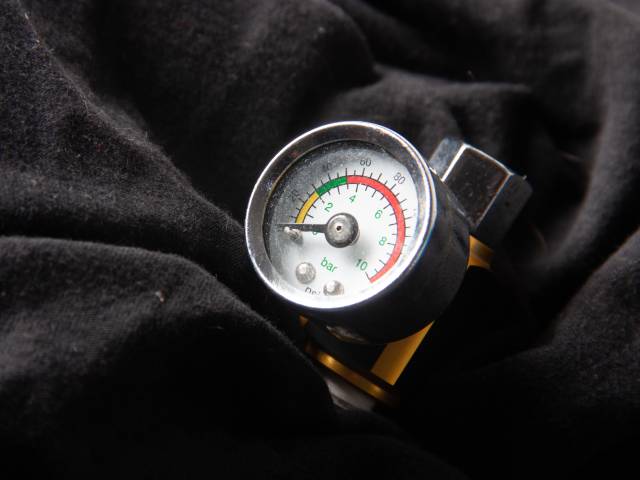

Hearing an unfamiliar knocking noise coming from your new car’s engine can be alarming, but even the latest models can experience issues like this. Identifying the cause of engine knocking early is crucial to avoid permanent engine damage and costly repairs. By following some simple steps and knowing how to diagnose engine knocking in new cars, you can pinpoint the problem before it worsens.
Engine knocking, or pinging, is a sharp, repetitive sound that occurs when fuel burns unevenly in your car’s engine. Factors like low-quality fuel, carbon buildup, or car timing issues can cause this.
Ignoring engine knocking can lead to serious damage, such as worn-out engine components and decreased vehicle performance. That’s why early diagnosis is essential to prevent these problems from escalating.
There are a few preliminary checks you can complete to help you determine the issue with your car’s engine.
First, make sure the sound you’re hearing is indeed engine knocking. Knocking is typically described as a metallic pinging or tapping noise, and it is especially noticeable during acceleration. Other noises, like rattling or clicking, could indicate different issues, such as problems with the exhaust or suspension.
Consider whether external factors like temperature and altitude could contribute to the knocking sound. Cars driven at high altitudes or in extreme temperatures may be more prone to engine knocking.
Low-octane or contaminated fuel can potentially lead to engine knocking. If you suspect that your chosen fuel is the issue, consider draining the tank and refilling it with high-octane gasoline to see if the knocking subsides.
To determine the source of your car’s engine knocking and how you should fix it, take some time to complete these steps.
One of the first things you should check is the engine oil. Low oil levels or the wrong oil type can eventually lead to engine knocking. Ensure the oil is at the correct level and that the type matches the manufacturer’s recommendations.
A critical step in diagnosing engine knocking in a new car is to listen to your vehicle. Pay close attention to when the knocking occurs. Is it happening during acceleration, idling, or at specific RPM ranges? Does it happen more frequently when the engine is cold or after it’s warmed up? These patterns can provide clues regarding the underlying cause of the engine knocking.
Incorrect ignition timing can also cause engine knocking. Listen carefully to see if the knocking is more pronounced immediately after startup or during the warm-up phase. If timing issues are suspected, professional mechanic services may be necessary.
If the knocking noise persists after you complete these checks or it becomes louder or more frequent, it’s time to consult a professional mechanic. Persistent engine knocking could indicate a more serious issue that requires immediate attention.
Before heading to the mechanic, document all your observations. Note when the knocking occurs, what environmental conditions are present, and any diagnostic steps you’ve already taken. This information can help the mechanic quickly identify the problem.
Early diagnosis of engine knocking is key to preventing further damage and the need for costly repairs. If you’re ever in doubt, seek professional services to ensure your vehicle remains in top condition.
24World Media does not take any responsibility of the information you see on this page. The content this page contains is from independent third-party content provider. If you have any concerns regarding the content, please free to write us here: contact@24worldmedia.com

Common Home Repair Tools To Have Available

Bathroom Essentials for New Commercial Restrooms

Strategies To Increase Sustainability on Your Farm

Top Machines Every Pharmaceutical Facility Should Invest In

How To Choose the Most Appropriate Work Gloves

Why You Need To Improve Drainage on Your Property

Essential Tips To Shield Your Car Windows From Damage

Warehouse Optimization Tips To Improve Performance

How High-Humidity Climates Affect Pressure Gauges

How Is Global Health Improving Year After Year